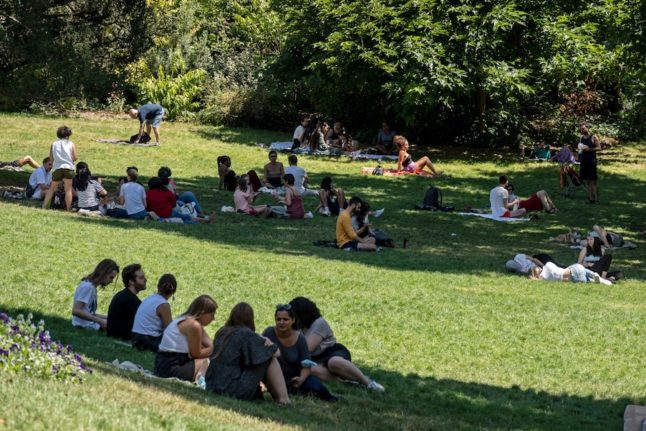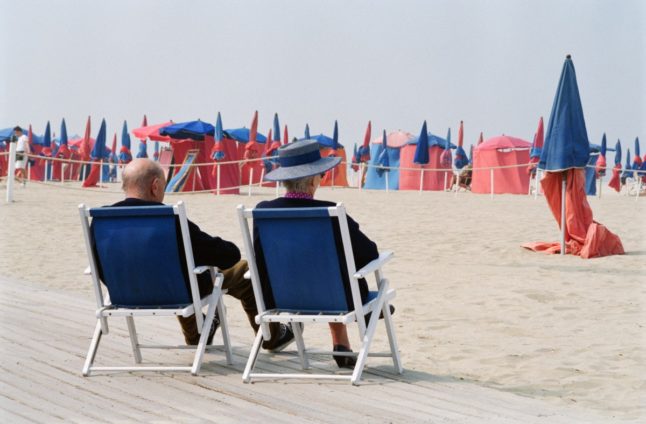La Belle Vie is our regular look at the real culture of France – from language to cuisine, manners to films. This newsletter is published weekly and you can receive it directly to your inbox, by going to your newsletter preferences in “My account”.
The sun has poked out form behind the clouds a few times this week, giving those of us in Paris a little taste of spring weather. I realised recently that I’ve gone a bit native – as soon as we have a warm day with blue skies, I rush to the park for a picnic with all the other Parisians.
One thing I love about French picnics: the freedom of not having to plan. You can always just pop into a boulangerie on the way and pick up some sandwiches and baguettes, easy-peasy. Though, I must admit I was surprised by the public drinking when I first moved to France – turns out it’s (usually) legal to drink in the public space.
What are the rules for drinking in public in France?
Aside from the fun of sipping a glass of rosé on a picnic blanket in the park, part of the joy to French picnics is the affordability. Compared to the US, high quality cheese, wine and charcuterie come at a fraction of the price in France. If you’re curious about just how much that price difference is, then you should check out the comparison video made by French language influencer Cécilia Jourdan (you can find it here).
While Paris is a pricey city – especially when it comes to rent – there are so many free outdoor and cultural activities that help to make up for it.
The best free thing to do in each Paris arrondissement
In the spirit of affordable activities in France, camping can be a great way to get a taste of the country without building up too large of a bill.
When I think of camping, I often think of a very rustic experience, surrounded by nature with no toilets nearby. If you like being in the wilderness, then this obviously has a certain appeal. But I’ve noticed that many camping sites in France are borderline luxurious – there is often a swimming pool, cabins, restaurants, and sometimes even spas.
According to Jennifer Wilson at the Best French Campsites, there are a few that really stand out.
10 stunning places to go camping in France
If you’re looking to get into the great outdoors, you might be more tempted to rent a campervan rather than set up at just one campground.
Maybe I’m a bit naive, but I was under the impression that you could park a campervan pretty much anywhere. Alas, there are rules.
EXPLAINED: Where in France you can park your campervan
I noticed that the list of stunning campsites had several in Brittany, which does not surprise me.
I visit the Morbihan département every summer, and I’ve noticed trains filling up faster and tickets getting more expensive. Brittany does have a little bit of everything – gorgeous beaches, unique gastronomy, prehistoric sites, and hiking paths.
Why more and more tourists are flocking to Brittany
Brittany also has a fascinating local culture. If you drive in the region, you’ll notice that signs are in the Breton language as well as in French. It’s also very common to see families flying the iconic black and white Breton flags.
I learned recently that over 115,000 Bretons left France for North America between 1885 and 1970, in hopes of escaping poverty. There were several waves of emigration out of France, including members of the Huguenots protestant community who left due to religious persecution.
Unsurprisingly, Canada is home to a huge portion of the French diaspora, but plenty of French people also went to the US and UK to build new lives.



 Please whitelist us to continue reading.
Please whitelist us to continue reading.
Member comments